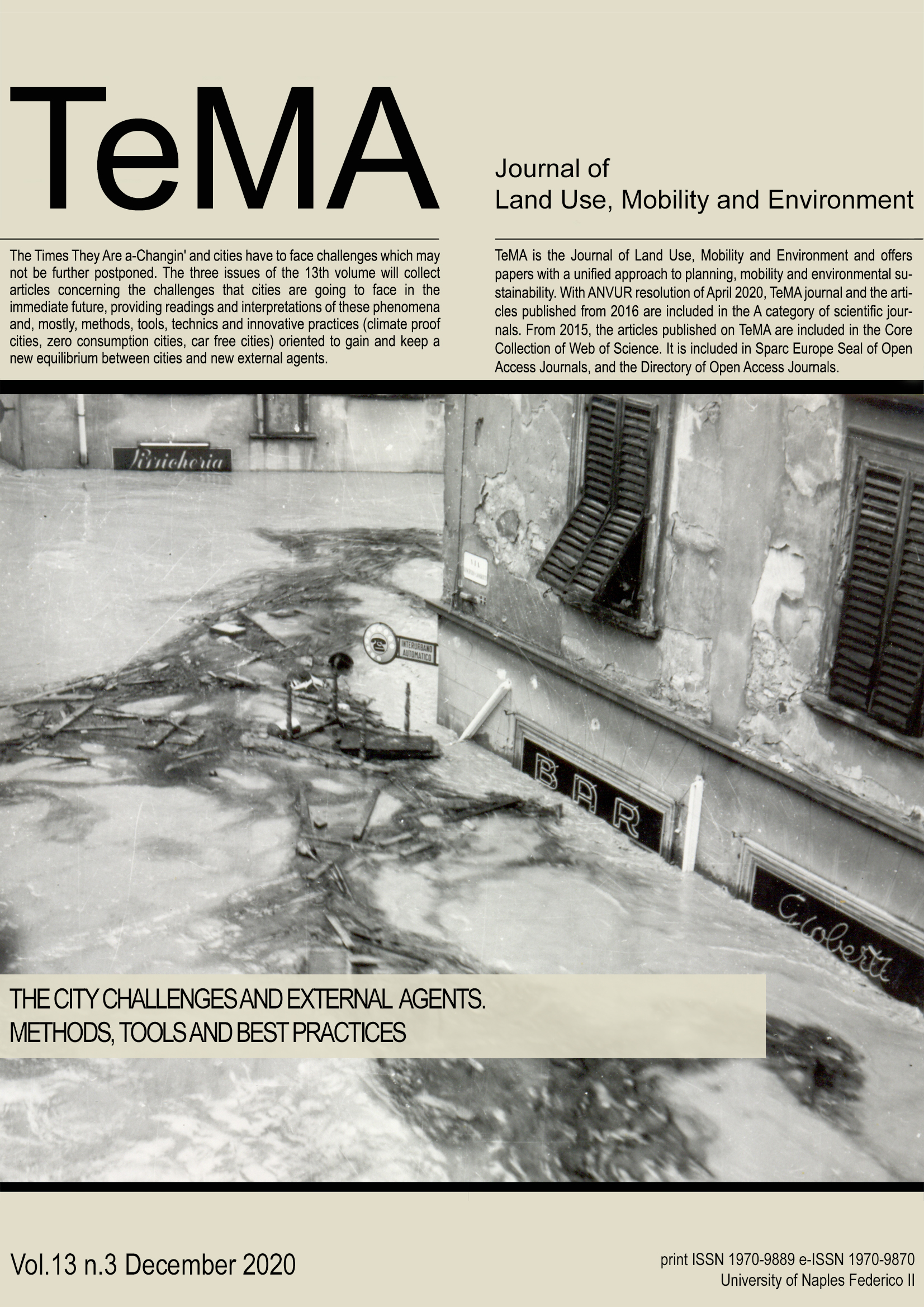The Covid-19 pandemic from the elderly perspective in urban areas: An evaluation of urban green areas in 10 European capitals
DOI:
https://doi.org/10.6092/1970-9870/7007Keywords:
Covid-19, Urban areas, Elderly, Green areasAbstract
The global Covid-19 pandemic has reshaped lives and activities, especially in urban areas: national and regional authorities have had to react promptly to limit the spread of the coronavirus and avoid the collapse of healthy provision systems. Urban environments, as noted in several World Health Organization reports, are fertile ground for an epidemic’s rapid transformation into a pandemic due to their high densities of people, activities, structures and networks. Cities around the world have thus rapidly reorganised to manage the coronavirus crisis. This paper focuses on the spread of the Covid-19 pandemic in European countries during the initial emergency phase and the importance of safe access to and uniform distribution of urban services. We focus on urban green areas as a means of achieving better quality of life, especially for vulnerable groups like the elderly. We selected 10 capital cities (Amsterdam, Brussels, Berlin, Copenhagen, Dublin, Lisbon, London, Madrid, Paris and Rome) to reflect the heterogeneous demographic, social and economic panoramas of European countries and cities. The outcomes of this study can support decision-makers in defining priority actions to reduce the negative impacts on the elderly in the coexistence phase of the pandemic and for future development.
Downloads
Downloads
Published
How to Cite
Issue
Section
License
Authors who publish in this journal agree to the following:
1. Authors retain the rights to their work and give in to the journal the right of first publication of the work simultaneously licensed under a Creative Commons License - Attribution that allows others to share the work indicating the authorship and the initial publication in this journal.
2. Authors can adhere to other agreements of non-exclusive license for the distribution of the published version of the work (ex. To deposit it in an institutional repository or to publish it in a monography), provided to indicate that the document was first published in this journal.
3. Authors can distribute their work online (ex. In institutional repositories or in their website) prior to and during the submission process, as it can lead to productive exchanges and it can increase the quotations of the published work (See The Effect of Open Access)


